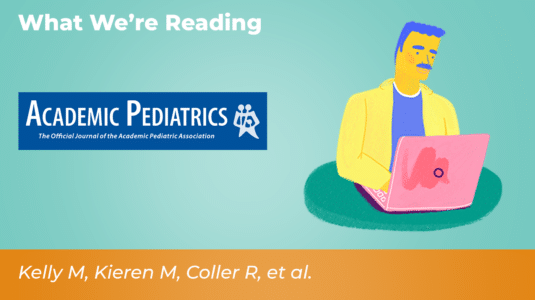This issue brief summarizes the activities and learnings of the Coalition for Care Partners around shared access. Research has spanned from 2019 to 2025, including the formation of the Shared Access Learning Collaborative. The Coalition offers recommendations for policymakers, clinical leadership, patients, and care partners.
Proxy Access/Caregivers
Users’ perspectives on a demonstration to increase shared access to older adults’ patient portals
As shared access uptake remains low, the Coalition for Care Partners, and three healthcare delivery organizations, co-designed an initiative promoting shared access to the patient portals of older adults.
Identifying, Engaging, and Supporting Care Partners in Clinical Settings: Protocol for a Patient Portal–Based Intervention
This study aimed to implement a novel patient portal–based intervention to identify, engage, and support care partners in clinical settings. Early results suggest that the intervention could be an easily scalable and adaptable method of identifying and supporting care partners in clinical settings.
A Multisite Demonstration of Shared Access to Older Adults’ Patient Portals
In this quality improvement study of 16,005 patients from 3 diverse US sites, new shared access registration was unchanged; however, use of shared access functionality among registered care partners increased. Care partners logged in more frequently, viewed more laboratory results and clinical notes, and scheduled more visits after the demonstration.
Advancing cancer care through digital access in the USA: a state-of-the-art review of patient portals in oncology
Patient portal use among patients with cancer has increased significantly in recent years. This state-of-the-art review seeks to address and analyse literature involving patient portal use by patients with cancer and their care partners.
Is Routine Discharge Enough? Needs and Perceptions Regarding Discharge and Readmission of Palliative Care Patients and Caregivers
This study investigated the hospital discharge process for palliative care patients and their caregivers, focusing on its patient-centeredness, discharge readiness, and links to readmissions.
Shared access to adults’ patient portals: A secret shopper exercise
Our secret shopper exercise unveiled noteworthy variability in the experiences of 18 individuals attempting to grant or receive shared access to the patient portal, highlighting multiple barriers and facilitators to shared access. The findings underscore the imperative for cross- and intra-organizational collaboration aimed at learning from the diverse experiences of patients, care partners, clinicians, and staff, and disseminating best practices.
Identifying research priorities and essential elements of palliative care services for people facing malignant brain tumors: A participatory co-design approach
Malignant brain tumors (brain cancer) significantly affects the quality of life (QoL) of patients and their care partners, particularly in areas like cognition and communication. This study aimed to find out the top research priorities for palliative care in brain cancer using a collaborative, community-driven approach.
Patient portals fail to collect structured information about who else is involved in a person’s care
“Shared access” uses separate identity credentials to differentiate between patients and care partner portal users. EHR vendors must recognize that both patients and care partners are important users of their products and acknowledge and support the critical contributions of care partners as distinct from patients.
Pediatric open notes: Caregiver experiences since the 21st century Cures Act
While research on the impact of Open Notes in pediatric inpatient settings remains limited, recent findings have improved our understanding by adding actual caregiver experiences to the expectations identified in our initial study. As we move into this new era of transparency, we call for further investigation of the impact of note sharing on health care outcomes for children while continuing to develop strategies to mitigate challenges.













